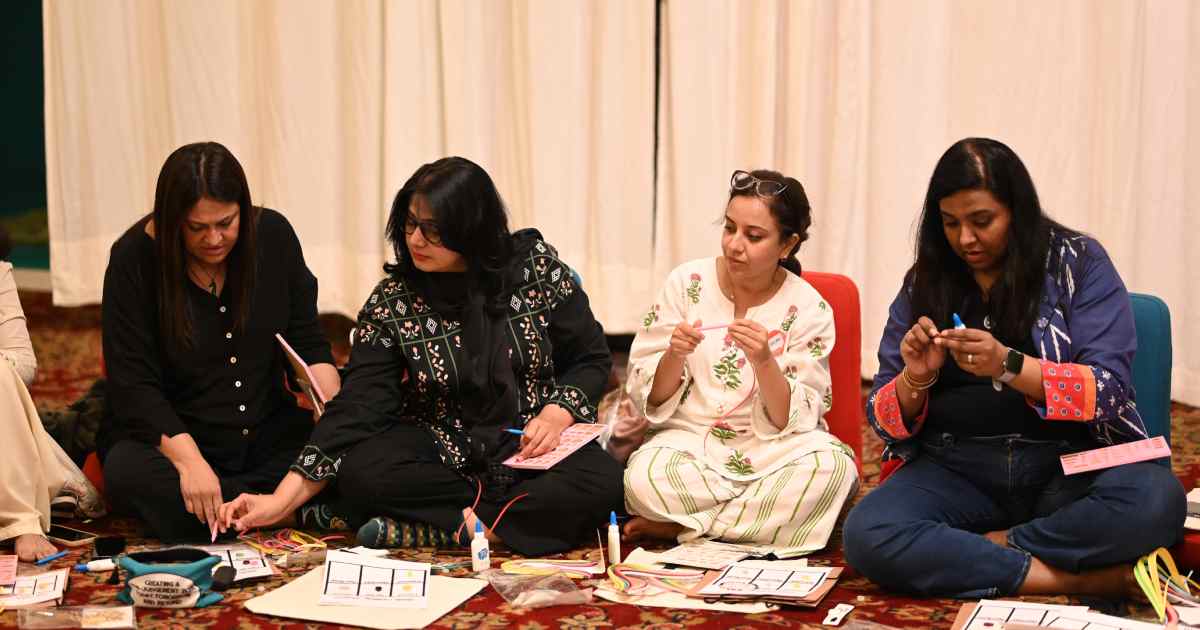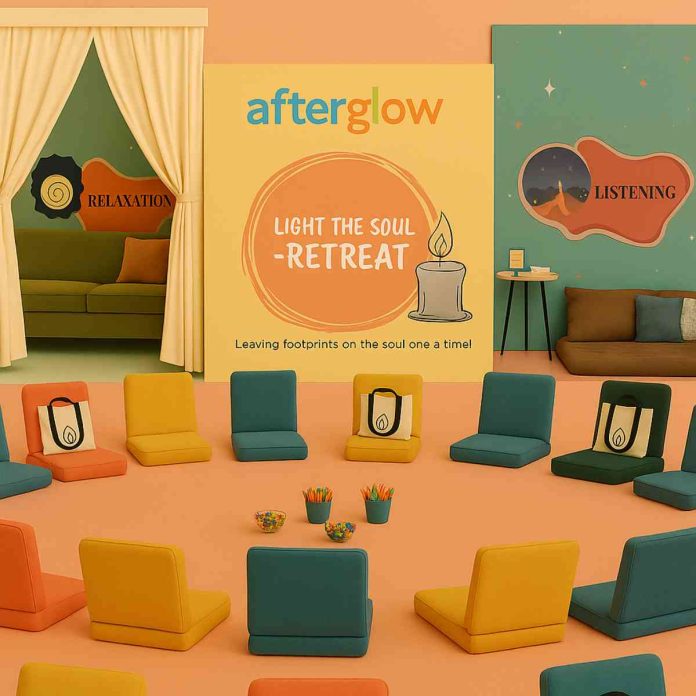In conversation with Sumika Farooqi, Founder of Afterglow Global
There’s a certain energy that Sumika Farooqi carries, equal parts serenity and valiant conviction. A full-time HR professional at a leading FMCG company, a mother of two, and the driving force behind Afterglow Global, Sumika has built a venture that marries discipline with discovery.
Afterglow began as her own journey toward self-reflection and a better hereafter. Today it stands as a beacon of inclusion, its sun-inspired logo reminding each of us that the true magic is in the “after” glow of discovering the light within.
We sat down with Sumika to understand what led her to launch this soul-centred initiative, how her corporate experience informs its operation, and why Pakistan needs more non-judgmental spaces for faith exploration.
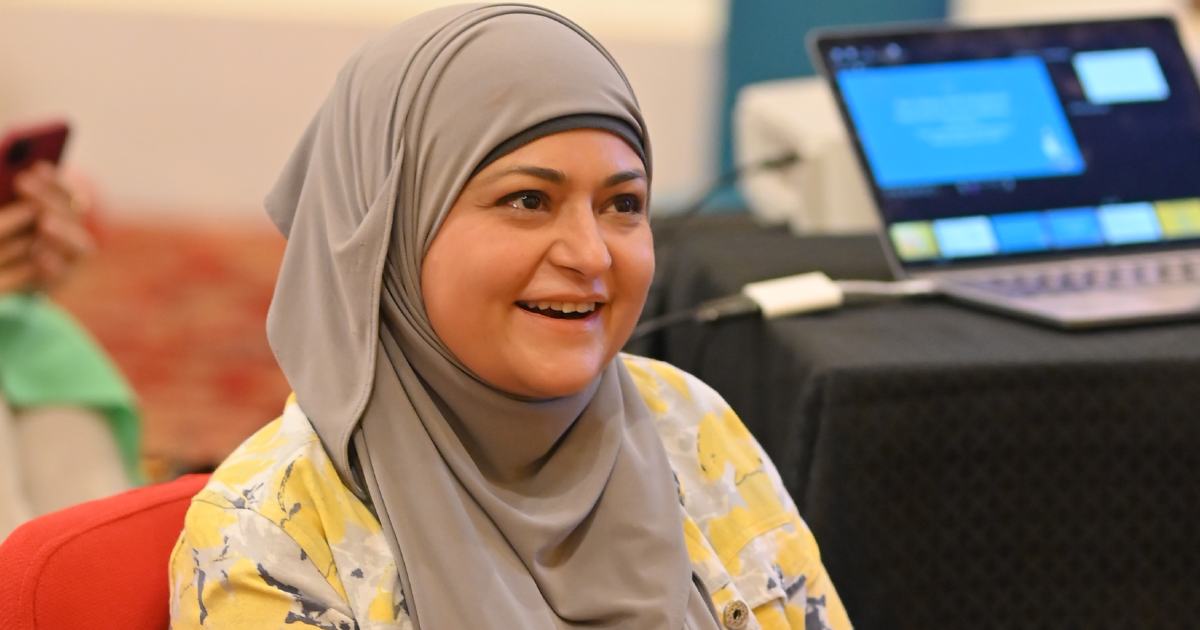
Synergyzer: What inspired you to establish Afterglow Global, and how does it reflect your personal journey toward spiritual growth?
Sumika Farooqi: I’ve always thrived on consistency and discipline, but after years, I realised I lacked the right tools to strengthen my connection with God. During a conversation with a Christian colleague, I stumbled on the idea of having faith retreats once a year to rejuvenate one’s faith in God and fundamental beliefs.
It struck me that while we revere religion and hold it close to our hearts, we may have religious sermons and classes, but we rarely create spaces where people can come as they are and learn about Islam without fear of judgment.
The venture began as my own journey to self-discover potential and live my purpose, then grew into Afterglow Global. It reflects my belief that spiritual growth can be both purposeful and an activity, just as life in HR demands structure, this initiative demands openness and reflection.
Synergyzer: Afterglow Global doesn’t fit the typical ‘women’s initiative’ template. What was the defining moment that made you take the leap from idea to execution?
Sumika Farooqi: The defining moment was in that same chat with my colleague. Her eyes lit up as she described her upcoming annual retreat. I thought, why don’t we have this? Why must religion feel like work?
Islam is such a beautiful, comprehensive faith. If anyone should make it exciting and something to look forward to, it’s us. We should take initiative, and I’m someone who once commits, does not let go, and that self-commitment propelled me from idea to action.
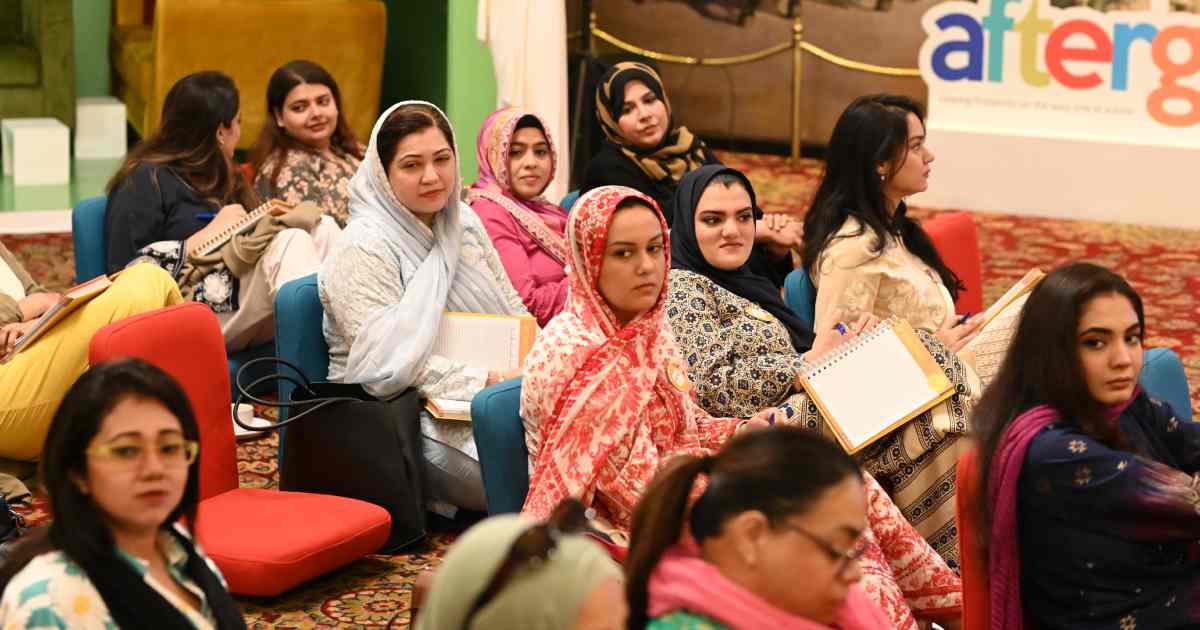
Synergyzer: You work in HR by profession, yet you’ve built a soul-centred initiative on the side. How does your corporate experience inform how you run Afterglow?
Sumika Farooqi: My corporate background has been a tremendous asset. In HR I learnt about attention spans in workshops, how to promote events effectively, and the importance of tangible takeaways.
From structuring agendas to evaluating impact, I’ve borrowed every relevant lesson from the boardroom, all of which have been very instrumental for me in this venture. In that sense, there’s no conflict; corporate discipline underpins this spiritual work.
Synergyzer: In your retreats, women often unlearn more than they learn. What’s one belief you’ve personally had to unlearn?
Sumika Farooqi: What I’ve learned above all is to maintain a consistently non-judgmental mindset. The idea that everyone’s spiritual journey looks the same.
Afterglow taught me to maintain a state of constant receptiveness. People arrive from diverse backgrounds: different upbringings, experiences, and levels of faith. Our multi-coloured logo stands for inclusion, and I’ve learned to embrace that diversity rather than allow my own biases to shape first impressions.
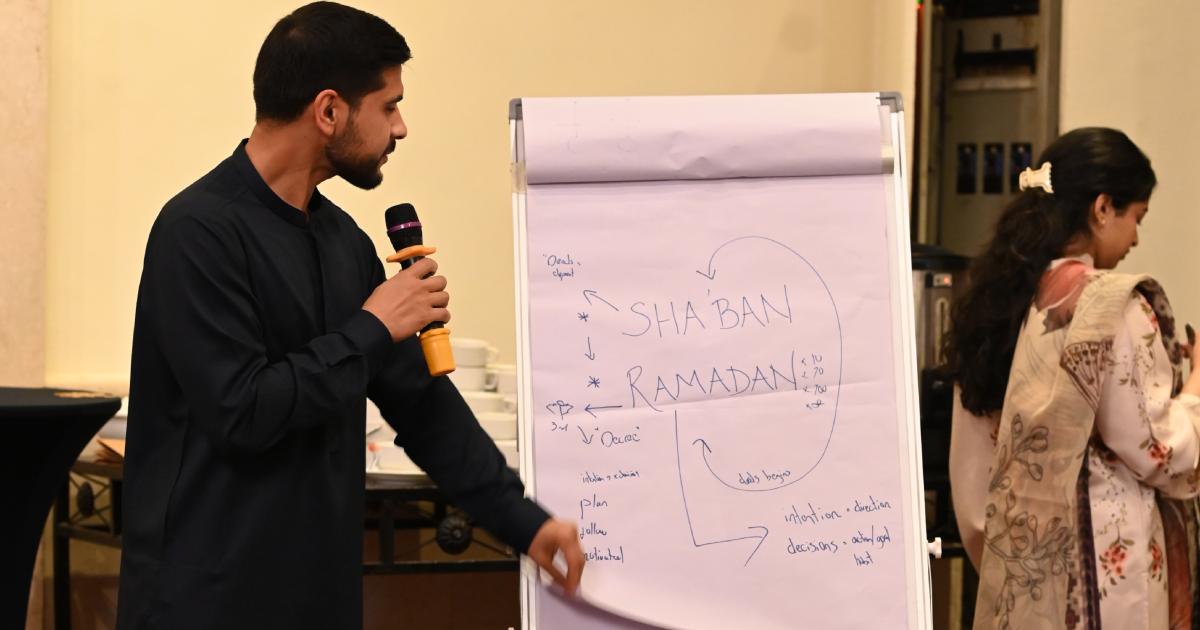
Synergyzer: What’s a failure you’re secretly grateful for, and how did it redirect your purpose or approach?
Sumika Farooqi: Early on, much of my family didn’t believe in what I was doing. The idea of a fun, faith-centred retreat felt out of the box. Their scepticism became the uphill battle I needed.
That resistance fuelled my resolve, made me more resilient, and ultimately deepened my commitment to Afterglow’s mission, to my cause. If that opposition wasn’t there, who knows, I might not be as committed.

Synergyzer: Many nonprofits concentrate on pressing material needs: education, healthcare, livelihood, yet Afterglow focuses on spiritual restoration. Why should nurturing the soul be considered just as urgent and deserving of investment?
Sumika Farooqi: Spiritual restoration provides the foundation for lasting change. When women leave an Afterglow retreat, they don’t just feel uplifted for a day, they gain renewed clarity of purpose. That inner shift often becomes the driving force behind real-world action.
Nearly 200 participants have since launched or joined community projects from neighbourhood literacy circles to health-awareness workshops because they felt empowered to serve. By tending to their own spiritual health first, they build resilience, reduce burnout and deepen their capacity for empathy.
In this way, lighting the soul creates a multiplier effect: empowered individuals fuel initiatives in education, healthcare and livelihoods. Investing in the heart, then, is truly an investment in every other urgent need our communities face.
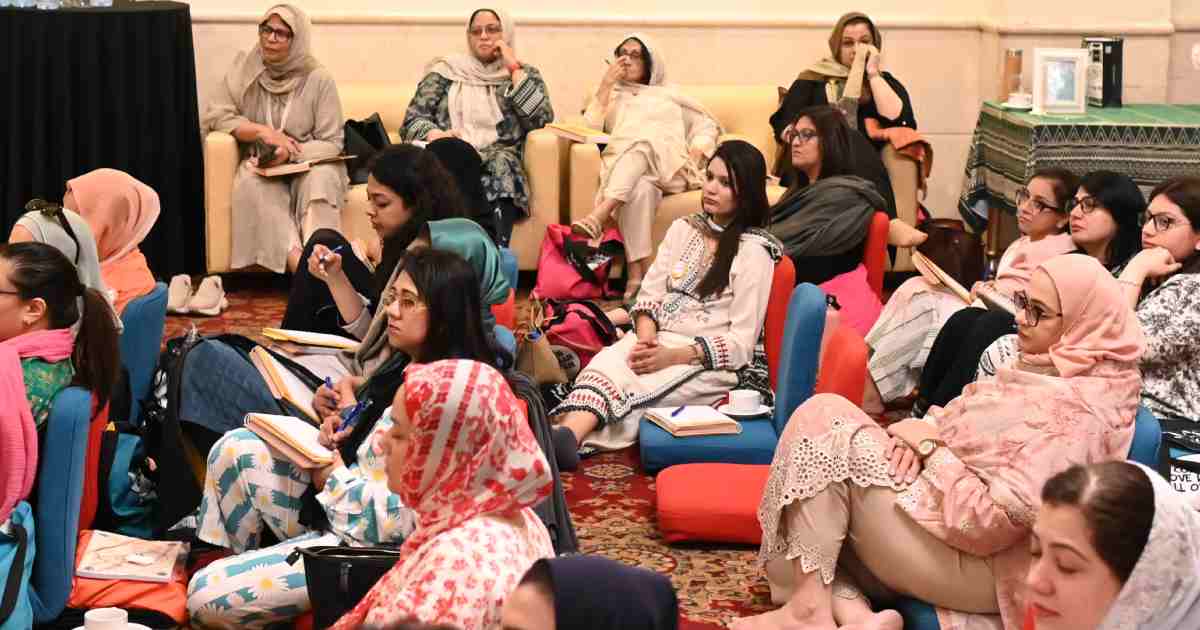
Synergyzer: What goes into designing a retreat that feels safe, empowering, and non-preachy, especially in the context of religion and womanhood?
Sumika Farooqi: It starts with our speakers. We choose contemporary voices; some scholars, some practitioners who can blend deep Islamic knowledge with approachability. We pepper sessions with ice-breaking activities, small-group discussions, and maintain a colourful, welcoming ambience.
And so long as we create a no-judgment zone, God’s blessings seem to fill the gaps, making every woman feel safe enough to ask the most vulnerable questions.
Synergyzer: You’ve mentioned two distinct chapters: Light the Soul and Heal the World. Could you explain them?
Sumika Farooqi: Light the Soul grew directly from that Christian retreat conversation. We wanted something spiritually healing and genuinely fun. It reframes faith work as an inviting journey, not a chore.
Heal the World is our call to community service. Islam repeatedly emphasises social responsibility, so we partner with Pakistan’s brilliant organisations, whether through financial or time investment, to extend our impact beyond the retreat space.
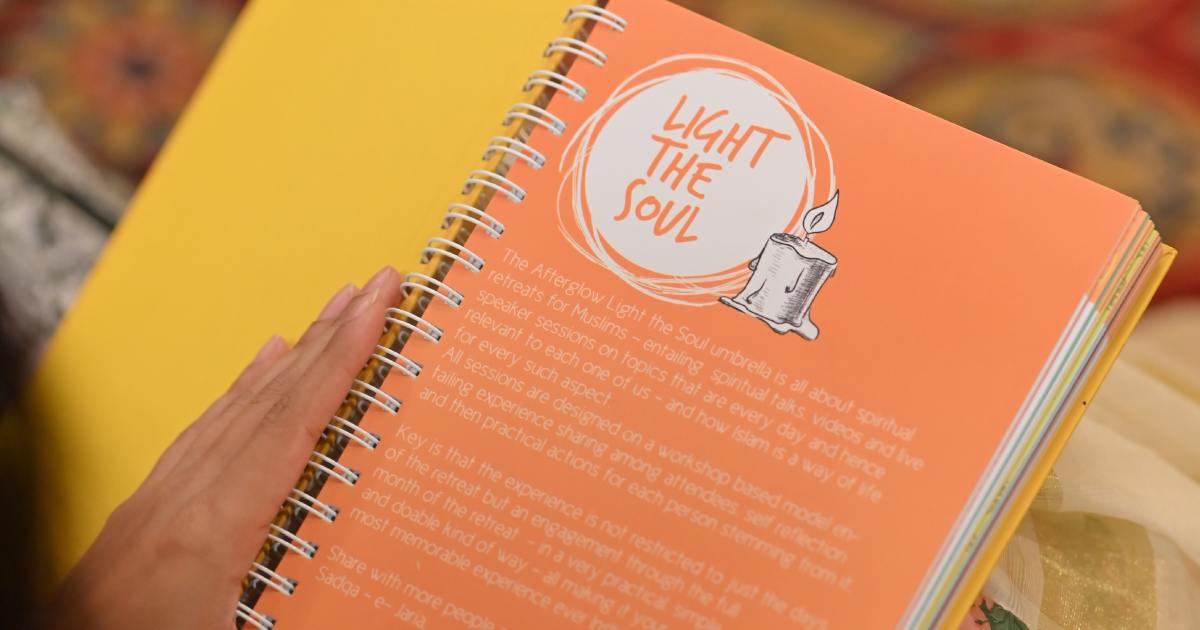
Synergyzer: What have been the biggest operational challenges you have faced as a nonprofit, and how have you navigated them with limited resources?
Sumika Farooqi: The greatest hurdle has been conveying the true essence of Afterglow. As the sole member of the team, I lack marketing expertise, which makes it difficult to articulate our vision in a way that resonates with a broader audience and inspires donations.
At the same time, raising awareness among potential participants remains a constant effort. Word of mouth from past attendees has driven organic growth but relying solely on personal networks restricts our reach.
To address these limitations, I focus on clear messaging that emphasises personal testimonials and concrete outcomes when sharing on social media and in local community circles.
I also collaborate with like-minded organisations to co-host sessions, tapping into their audiences to introduce Afterglow to new groups. These approaches have allowed us to maximise every resource, even as we continue to expand our awareness.
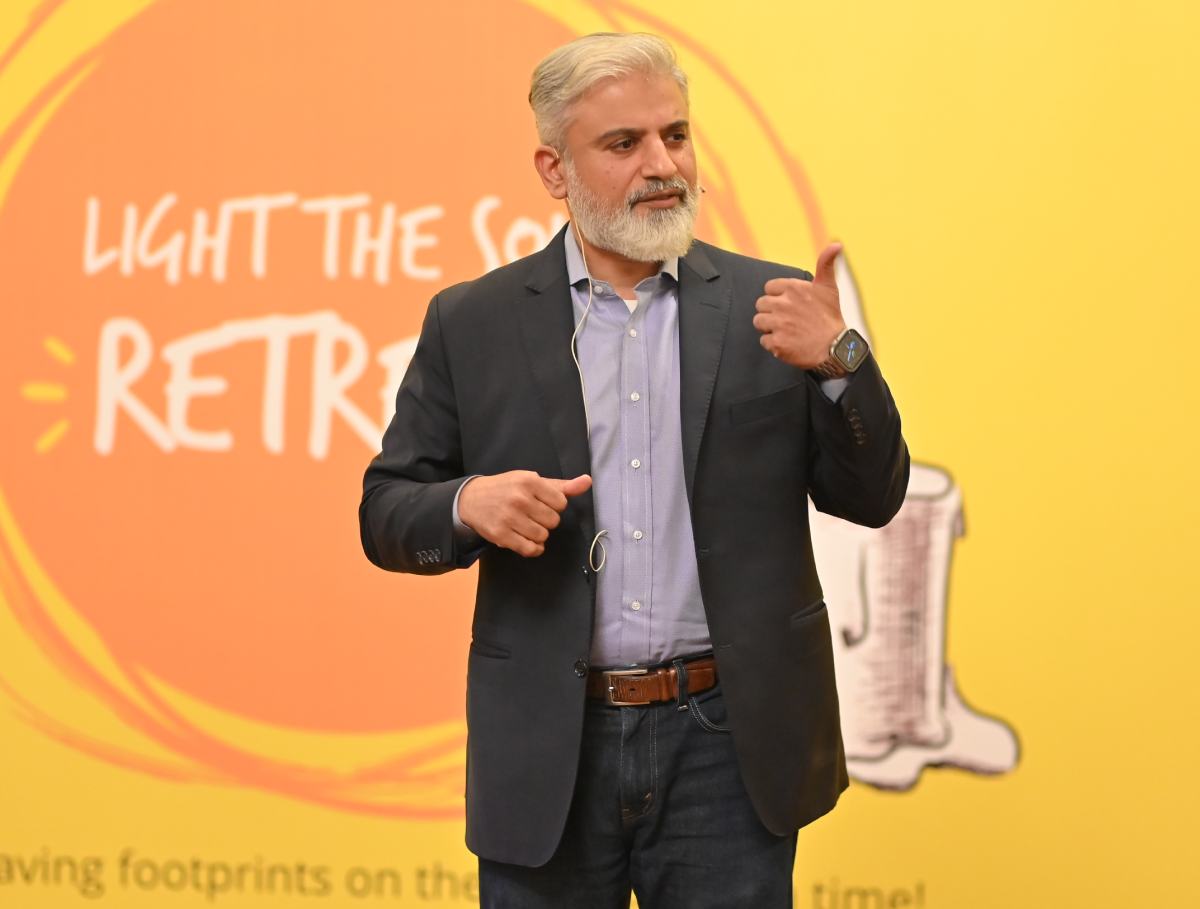
Synergyzer: Can you share a memorable story or feedback from a participant that encapsulates the impact Afterglow has had on women’s spiritual journeys?
Sumika Farooqi: “This was my second time attending Afterglow, the annual Islamic retreat arranged by Sumika Farooqi. There were so many unforgettable moments during those peaceful three days. From the warm participants to the most knowledgeable scholars, everything was exceptional.
The first thing I noticed was the sense of inclusiveness. Although I am not very religious, let alone a hijab wearer, and I do not even wear a dupatta (which I am working on). I was never judged, singled out or ‘preached’ to. It felt like a safe place where I could truly be myself.
Next, it answered so many of my questions. Any confusion I had, I could simply ask again without feeling ignorant. I felt confident seeking clarification on even the smallest points.
Last but not least, it was not about teaching the same old lessons. Instead, we explored self-care, the importance of friendship, independence, and running fair businesses. We learned about powerful, intelligent, independent women in Islamic history, which made us realise that anything is possible for us.
The entire ambience was welcoming, colourful, pleasant, fresh and relaxing. I never imagined that learning about Islam could be so stress-free, with no fear of judgment or blame. Thank you so much, Afterglow.”
That testimonial captures our philosophy: Afterglow is for you, for me, for each one of us, no matter where we are on the journey.
